 |
apollo 1
from the Temple of Zeus at Olympia, a reconstruction of the
west pediment
c. 468-460 b.c.
approximately 91 feet wide
Apollo, the
depiction of reason, presides over a brawl at the wedding of Peirithous,
centaurs tried to abduct the bride; he stands approving of Theseus and
Peirithous’ “chastisement of this breach of hospitality”
(from de la Croix, page 152) |
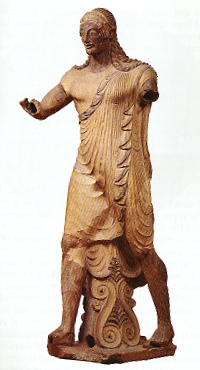 |
apollo2
“Apollo” from Veii
c. 510 b.c.
painted terra-cotta, approximately 70 inches high
Museo Nazionale di Villa Giulia, Rome
Etruscan, figure from the ridgepole of a temple (architectural
sculpture)
Archaic Greek influence can be seen in the stylization of this
sculpture: “the closed contour, the grimacing mask, the frontality”
(from LaCroix, page 193) |
 |
apollo3
Casket with Mythological Figures
X century ad or later
Italian, Sicilian
Ivory on wood, 5 5/8” x 9 1/8” x 5 3/16”
From the collection of Pirolo Family, Syracuse; Henry Oppenheimer,
London
only the
leftmost figure is identified in the text (Hercules subduing the Nemian
lion), but the rightmost figure bears iconic resemblance to Apollo, nude
with the bow and youthful appearance
(from Metropolitan Museum of Art, figure #71)
|
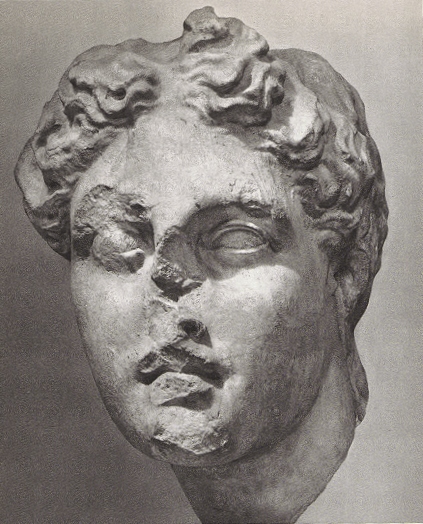 |
apollo5
“Head of Apollo” from Halicarnassus, mausoleum
Leochares
c. 350 bc
marble, height 1’3”
British Museum, London
(Charbonneaux, page 210, plate 220)
|
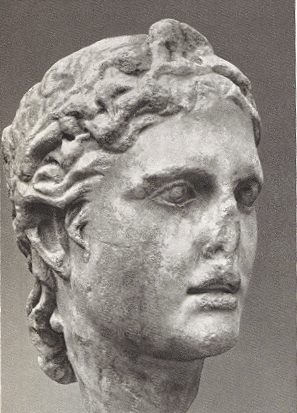 |
apollo6
“The ‘Steinhauser’ Apollo” (ancient reproduction)
Leochares (Attic art)
date of original = c.
350-340 bc
marble, 13 ¾”
Antikenmuseum, Basle
“Best replica of the head of the Apollo Belvedere”
(Charbonneaux, page 208, plate 217) |
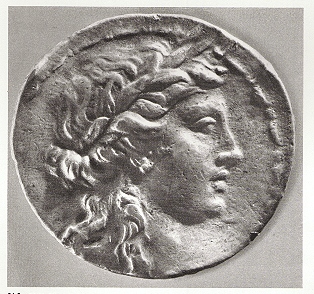 |
apollo7
silver tetradrachm of Antiochus IV Epiphanes (obverse)—head of
Apollo
c. 301-300 bc
diameter of coin: 1 ¼”
Bibliotheque Nationale, Cabinet des Medailles, Paris
“resembles the head of the statue of Apollo sculptured by Bryaxis
for the god’s sanctuary at Daphne, near Antioch, in 301-300 [bc]”
(Charbonneaux, page 205, plate 215) |
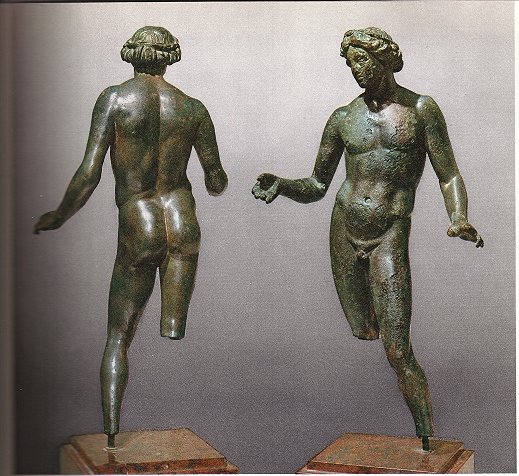 |
apollo8
“Statuette of Apollo”
from La Courriere
1st century, bc
Bronze, 11 ¾” tall
Louvre, Paris
A statuette
of an original that was created in the first quarter of the 3rd
century bc
(Charbonneaux, page 251,
plates 269-270) |
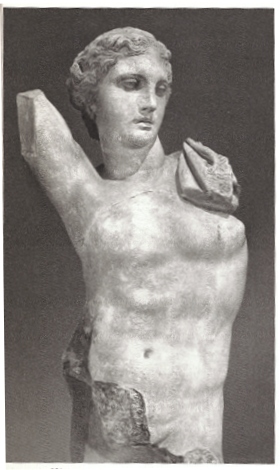 |
apollo9
·
“Torso of an Apollo Citharoedus, known as the ‘Apollo of
Tralles’” from Aydin, Tralles
plateu (post-Praxitelean art)
second half of 2nd century bc
marble, present height: about 6’3”
Archeological Museum, Istanbul
“The
statue consisted of several pieces. The
drapery lying over the left shoulder is adorned with fine relief
decoration.”
(Charbonneaux, page 304,
plate 331) |
![]()
![]()